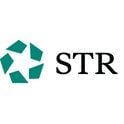U.S. Hotel Industry Pulse growth stagnant | STR Reports
Economic research firm e-forecasting.com in conjunction with Smith Travel Research announced HIP declined in January after improving 2.8 percent in December. HIP, the Hotel Industry's Pulse index, is a composite indicator that gauges business activity in the U.S. hotel industry in real-time, similar to a GDP measure. The latest monthly change brought the index to a reading of 82.4. The index is set to equal 100 in 2000.
HIP's six-month growth rate, which historically has signaled turning points in U.S. hotel business activity, improved from the previous month with a reading of negative 1.9 percent compared with negative 3.4 percent in December. As a benchmark, during the worst of the hotel industry recession, which was last March, the six-month growth rate hit negative 23.4. This compares with a long-term annual growth rate of 3.2 percent, the same as the 38-year average annual growth rate of the industry's gross domestic product.
“As we noted in October, the road to recovery for the hotel industry is going to be a bumpy one, with some months gaining ground while others reduce those gains. This month's reading leaves the industry nearly flat for the first month of the year," said Evangelos Simos, chief economist of e-forecasting.com. The probability of business improvement decreased slightly in January to 96.4 percent after a stronger reading of 98.4 percent was recorded in December.
The Hotel Industry Pulse index, or HIP for short, is a hotel industry indicator that was created to fill the void of a real-time monthly indicator for the hotel industry. The indicator provides useful information about the timing and degree of the industry’s linking with the U.S. business cycle for the last 40 years. Simply put, it tracks monthly overall business conditions in the industry, like an industry GDP, and points in a timely way to the changes in direction from growth to recession or vice versa. The composite indicator is made with the following components: revenues from consumers staying at hotels and motels adjusted for inflation, room occupancy rate and hotel employment, along with other key economic factors which influence hotel business activity.
About STR
STR provides premium data benchmarking, analytics and marketplace insights for the global hospitality industry. Founded in 1985, STR maintains a presence in 15 countries with a corporate North American headquarters in Hendersonville, Tennessee, an international headquarters in London, and an Asia Pacific headquarters in Singapore. STR was acquired in October 2019 by CoStar Group, Inc. (NASDAQ: CSGP), the leading provider of commercial real estate information, analytics and online marketplaces. For more information, please visit str.com and costargroup.com.
